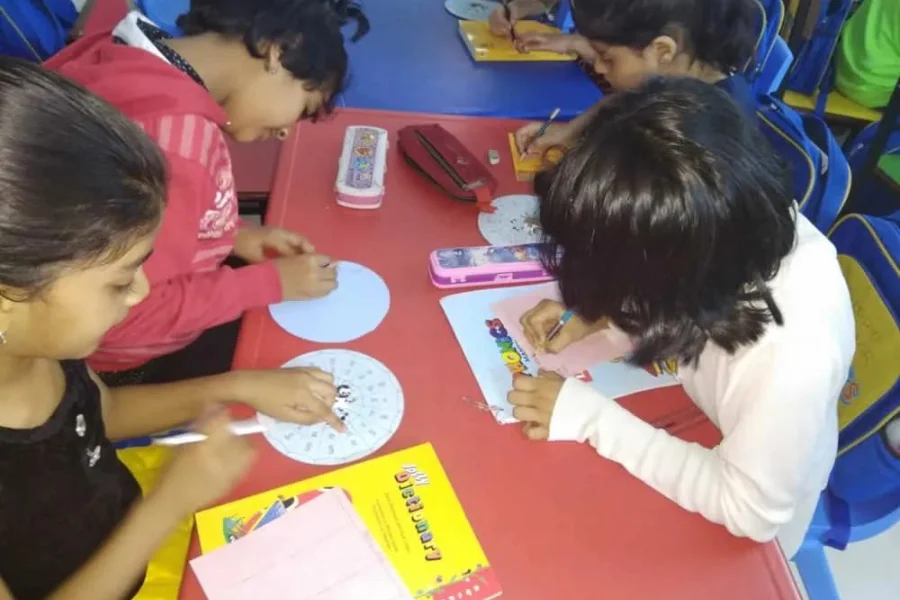
Source: healthwatchgreenwich
Non Phonetic Words are critical for initial learning but often stance a challenge to young students because they do not follow the normal guidelines of phonics. These Non Phonetic Spellings must be known on sight, as decoding them using regular phonetic patterns is not conceivable. Command of Non Phonetic Words is important for reading effortlessness and comprehension, making it important for teachers and parents to emphasize these words in their teaching plans.
Understanding Non Phonetic Words
Non Phonetic Words frequently found in everyday reading and writing like “said,” “are,” and “the” often do not adhere to standard phonetic patterns, making them challenging for learners. These words are crucial for sentence structure and meaning, making quick Understanding Non Phonetic Spellings vital for reading proficiency.
Teaching Strategies for Non Phonetic Words
Effective teaching of Non Phonetic Spellings involves a mixture of exposure, repetition, and contextual learning.
Here are Teaching Strategies for Non Phonetic Words to help students master them:
Flashcards
A classic and effective tool. Flashcards can help in the rapid recognition and recall of Non Phonetic Words.
Word Walls
Displaying Non Phonetic Spellings on classroom walls can reinforce learning through constant visual exposure.
Games and Activities
Engaging students with games like bingo or memory matches that include Non Phonetic Words can make learning fun and interactive.
Sentences Practice
Using Non Phonetic Spellings in sentences helps students understand their usage and context, which aids in memorization.
Get details of our Phonics Course via Call / Whatsapp on +919869866277 / +919869546913.
Click Here, to download our Phonics Course brochure.
The Role of Repetition
The Role of Repetition is critical when it comes to training Non Phonetic Words. Regular practice through reading and writing helps embed these words in a learner’s memory. Teachers and parents are facilitated to integrate these words frequently in instructions and daily conversations to enhance learning.
Importance of Contextual Learning
Importance of Contextual Learning being crucial for part of teaching, incorporating Non Phonetic Spellings within the context of stories or conversations can significantly improve understanding. On seeing and hearing Non Phonetic spellings in meaningful contexts, the children are more likely to remember and use them correctly.
Mastering Non Phonetic Spellings assists young readers in developing reading fluency and comprehension. Well-thought approaches like the use of flashcards, engaging games, and contextual learning can effectively support them in navigating this intricate aspect of the English language. Highlighting these words in early education ensures that children are equipped to tackle the complexities of language as they progress in their academic journeys, thus emerging as proficient readers.
Get details of our Phonics Program via Call / Whatsapp on +919869866277 / +919869546913.
Click Here, to download our Phonics Program brochure.

Source: phonicspower
Phonics Teacher Course
The Phonics Teacher Program offered by Vidhyanidhi Education Society is a leading program for educators aiming for a flourishing career in early reading instruction. This course equips teachers with the necessary tools and practices for successful phonics instruction, emphasizing the importance of phonetic skills along with Non Phonetic Spellings in literacy development.
Significant Aspects of the Phonics Teacher Course:
18 Hours of Thorough Training
The Phonics Teacher Program provides a compact yet comprehensive training session spread over 18 hours, ensuring that educators gain a deep understanding of phonics instruction along with Non Phonetic Spellings.
UK-based Synthetic Phonics Methodology
Following the popular UK-based Synthetic Phonics Methodology, the Phonics Teacher Course at Vidhyanidhi Education Society (Govt. Regd.)ensures adherence to global standards in phonics education.
Innovative Teaching Resources
Lectures are enhanced with audio-visual resources, making learning engaging and effective for all participants.
Interactive Techniques
The course includes demonstrations of sounds through jingles, stories, and actions, helping teachers to grasp and teach the sounds more effectively.
Exhaustive Sound Practice
Educators will go through thorough practice of all 42 sounds, including both letter sounds and digraphs, essential for teaching English reading.
Practical Training with Mock Drills
Mock drills provide hands-on experience, preparing teachers for real classroom scenarios.
Supportive Learning Environment
Doubt-solving and question-answer sessions are integral parts of the Phonics Teacher Program, ensuring that all participants can clarify their queries and enhance their understanding of phonics and Non Phonetic Spellings.
By enrolling in the Phonics Teacher Course at Vidhyanidhi Education Society (Govt. Regd.), educators not only polish their teaching methods but also become experts at integrating Non Phonetic Spellings into their phonics lessons. This holistic approach to early literacy instruction ensures that students develop a strong foundation in reading, blending phonetic accuracy with the rapid recognition of Non Phonetic spellings. Such training is invaluable in the pursuit of forming competent, confident educators who can foster a love for reading among young learners.
Boost reading skills with our Phonics Program today!
Get details of our Phonics Course via Call / Whatsapp on +919869866277 / +919869546913.
Click Here, to download our Phonics Course brochure.
Non Phonetic Words
FAQs
How to become a certified Phonics Teacher?
To become a certified Phonics Teacher, join the Phonics Course offered by VES, designed to provide all-inclusive training.
What is the duration of Phonics Course?
The duration of the Phonics Course covers 3 hours for 6 days each, resulting in a total of 18 hours.
Are Phonics Classes in demand?
Yes, Phonics Classes are in high demand as they are crucial for early reading development in children.



